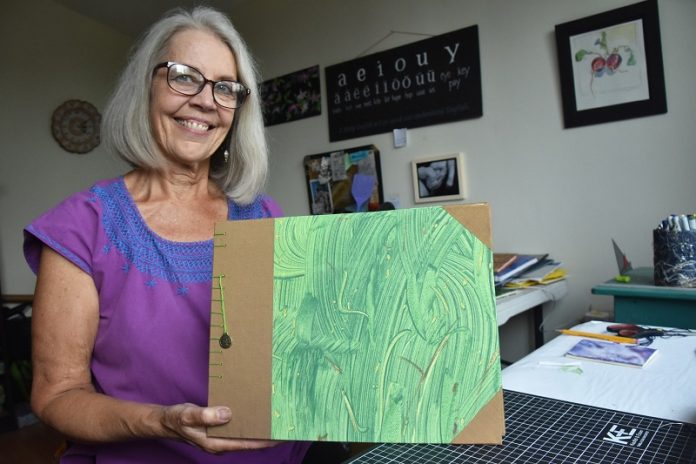Eliza Holliday is a bit of a throwback. She’s someone who still finds pleasure in the simple act of holding a book in her hands.
“I love books,” she said. “I like the act of opening a book, discovering something, absorbing information.”
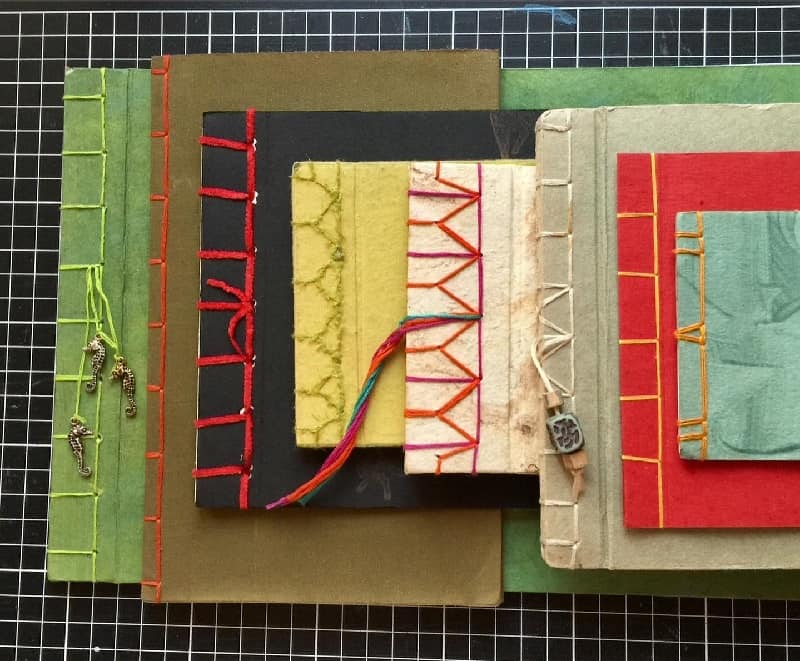
And she does much more than just open books. She makes them and teaches others how to do so as well.
A native of Chicago, Holliday is also a professional lettering artist.
“I took a [lettering] course in college,” she said. “I’ve always made my own greeting and business cards. I like making words look pretty. When I discovered calligraphy, that opened the door to art.”
Holliday has always had an interest in books. “I’ve been making books my whole life. The first one was for a boyfriend when I was 17.”
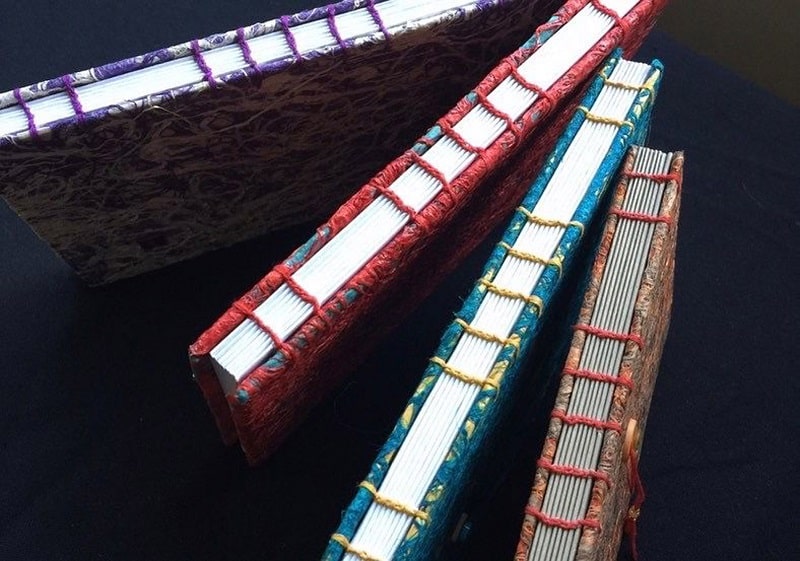
She taught calligraphy for many years, including at the curiously named Camp Cheerio, a Boy Scout camp in North Carolina where calligraphy retreats are held twice a year. When not teaching classes, she took workshops to learn bookmaking.
“Calligraphy and books are an obvious marriage, and I learned bookmaking so I could hand-letter my own books,” she explained.
Holliday and her husband Kenneth Cain came to Mexico eight years ago.
“We spent a year in Guadalajara and then went on a six-month quest around Mexico before landing in Cholula,” she said.
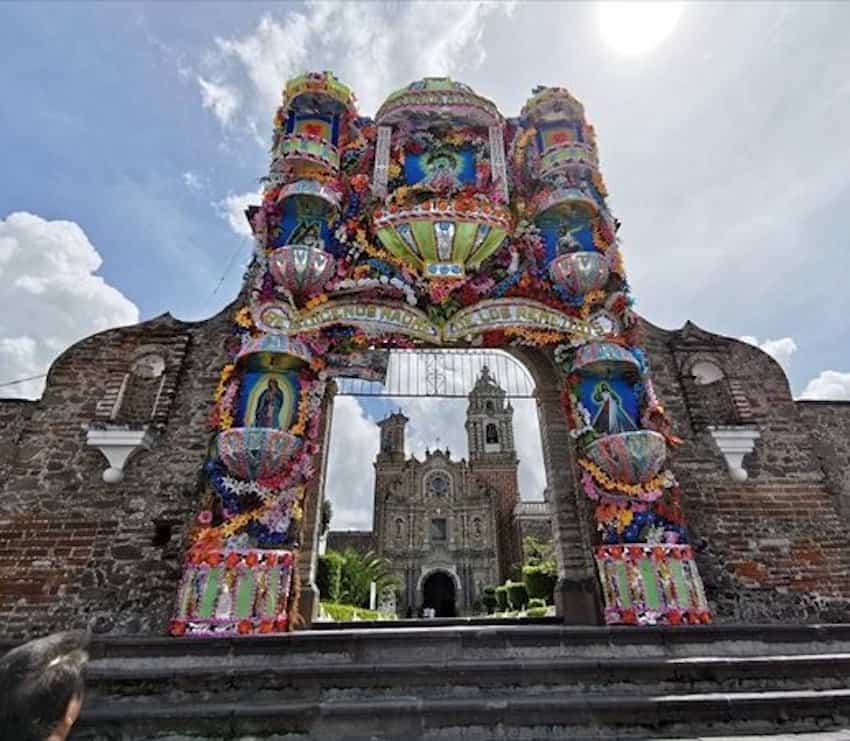
They now live in San Francisco Acatepec, a pueblo in San Andrés Cholula, where she started Amor Amate, a name that combines amor, meaning “love,” with amate, a type of Mexican handmade paper she’s fallen in love with.
She discovered papel amate when she walked into a Hiperlumen (an art-store retail chain in Mexico) and saw the paper for sale.
Papel amate is made in San Pablito, a tiny village about 3.5 hours from Puebla city, usually from the bark of the jonote tree (Trema micrantha). The bark is first cooked and then pounded with a rock, then dried in the sun.
After learning about the paper, Holliday and Cain drove to San Pablito and went to some of the galleries there.
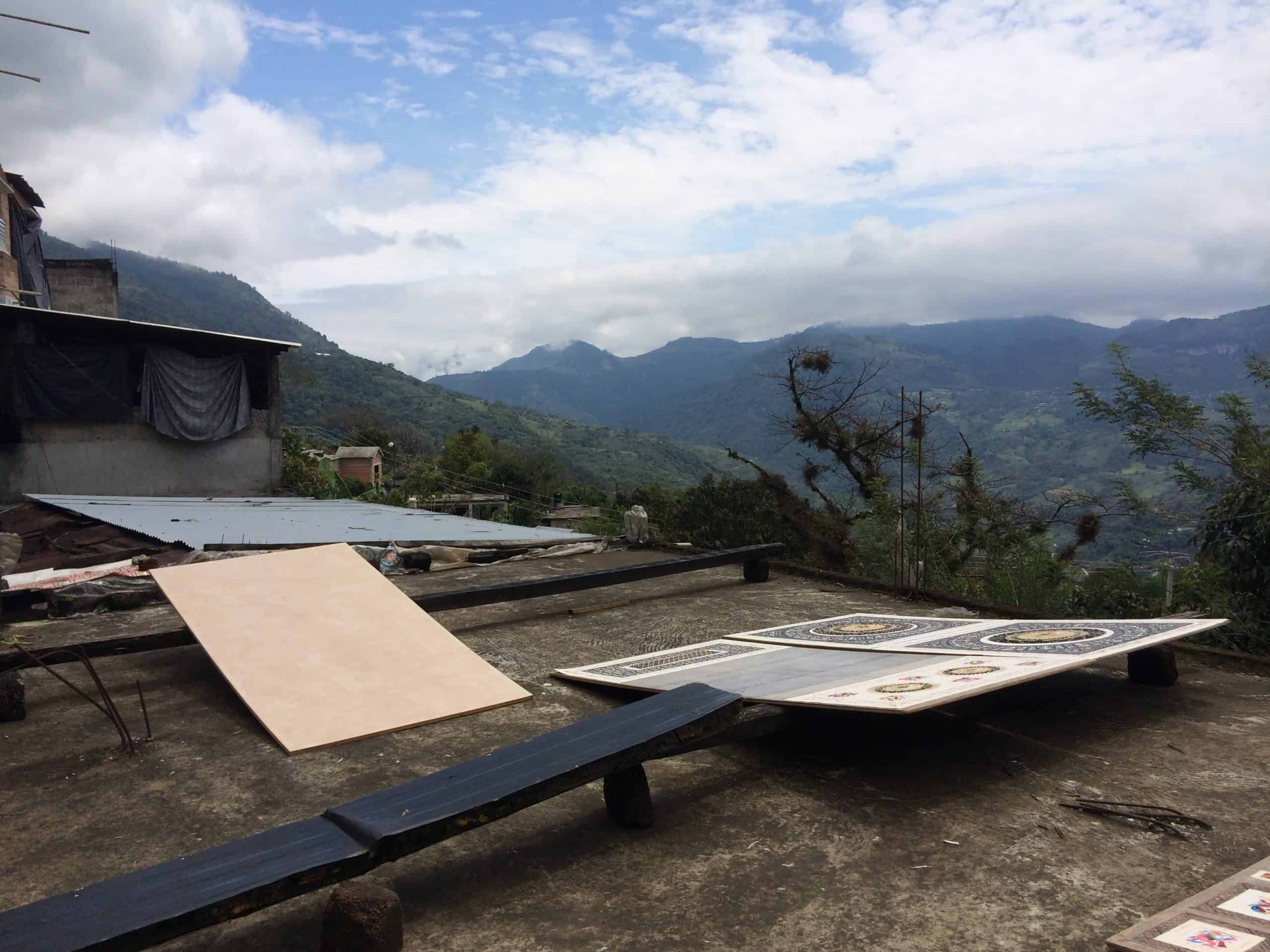
“People there are very open to the public,” she said.
She’s formed a close connection with the Santos Rojas family, who own the gallery Artesanía, and visits regularly to replenish her stock.
“Amate is very fragile, so you have to back it up with Japanese rice paper or some other paper,” she said. She also uses paste paper to make her books, and acid-free paper for the pages inside.
She teaches six different bookmaking workshops, including ones on making accordion-fold books, origami books and Coptic journals.
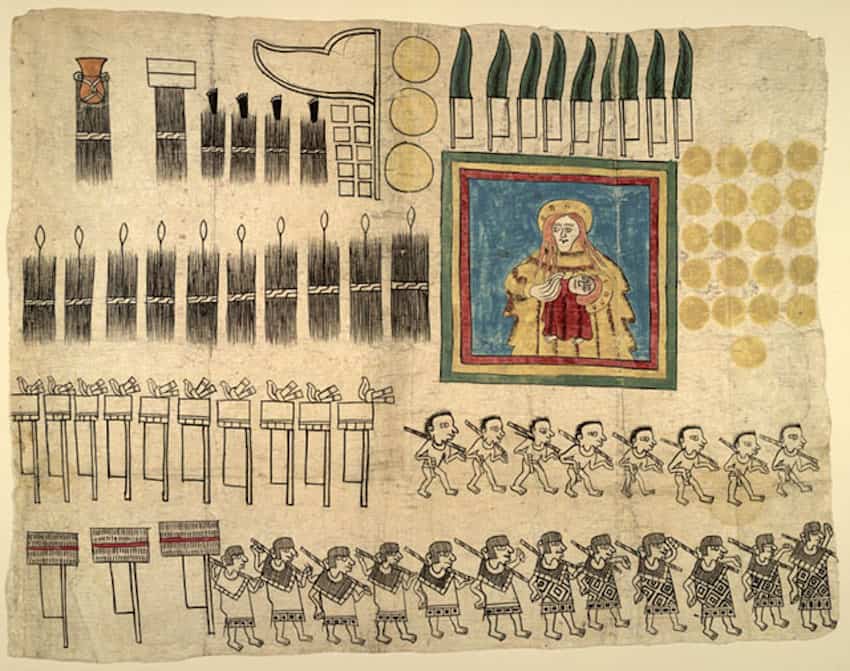
“Classes are [for] one day and [they are] four hours long,” she said. “In class, the first book you make is an instruction book on how to make the book. Then you get all the materials needed to make a bigger book, and you leave with two books.”
On the day I visited her, Holliday was working on a Coptic journal, binding the papers with what’s known as a Coptic stitch.
“The Coptic stitch is one of the most ancient binding techniques of mankind,” she said, explaining that it was invented around A.D. 200 by an early Christian group in Egypt.
Using a thick, curved needle, Holliday gently pierced the book’s paper, making a series of stitches that formed a chain, a trademark of the Coptic stitch. One benefit of this technique is that a book can lay flat when opened.
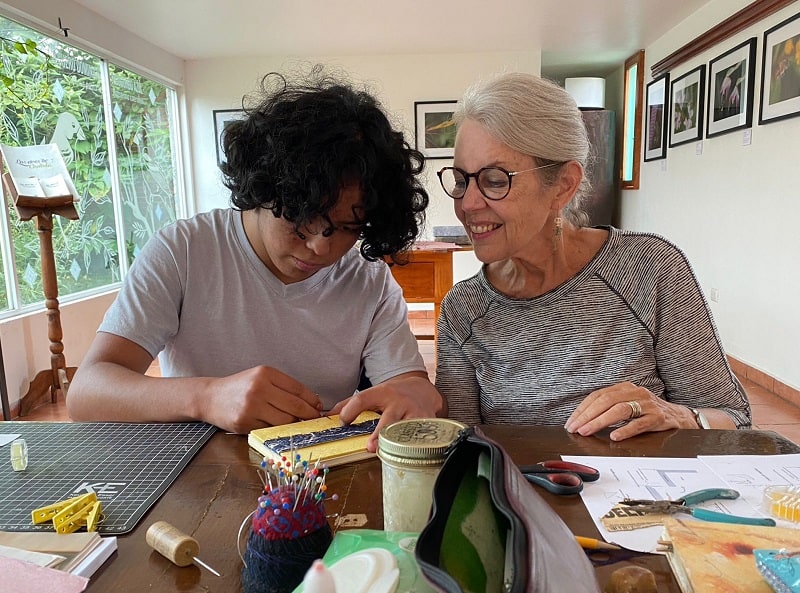
When asked how long it would take to make a book like the one she was working on, Holliday admitted she didn’t know.
“I never sit down and just complete a book,” she said. “I just work on them as I can work on them. Stitch by stitch, folio by folio.”
It may seem a little old-fashioned to put photos in a book since a book can hold a limited, rather small, number of photos while a cell phone or computer can hold thousands, but there’s something special about having just a few photos in a book, says customer Martha Cabrera, who recently bought a book from Holliday to give to her son and his girlfriend to use as a photo album for their first child.
“In a book, you only put in the most special photos,” she said. “You spend more time with each photo, and it brings back more memories. I like the book I bought from Eliza because it is made by hand. It is artisanal and unique.”
Holliday holds classes at the Jardín Etnobotánico Francisco Peláez Roldan in Cholula — although they’re briefly on hold due to construction work in the botanical garden.
“The classes are on demand,” she said. “There’s probably a two-person minimum, a maximum of 15.” Classes cost 400 pesos.
Holliday also takes commissions, designing photo and sign-in books for weddings, births and other occasions. She’s also coauthored books on calligraphy with Marilyn Reaves under the name Eliza Holliday and Eliza Schulte, available at johnnealbooks.com.
As Holliday showed me her various books and papers, I noticed that she handled them gently, almost caressing them. “All things handmade are important,” she said. “People want to touch and feel things.”
Eliza Holliday can be reached at her website, email or on social media at Instagram, Youtube and Facebook.
Joseph Sorrentino is a writer, photographer and playwright who currently lives in Chipilo, Mexico. More articles, stories and photographs may be found at his Substack account.
